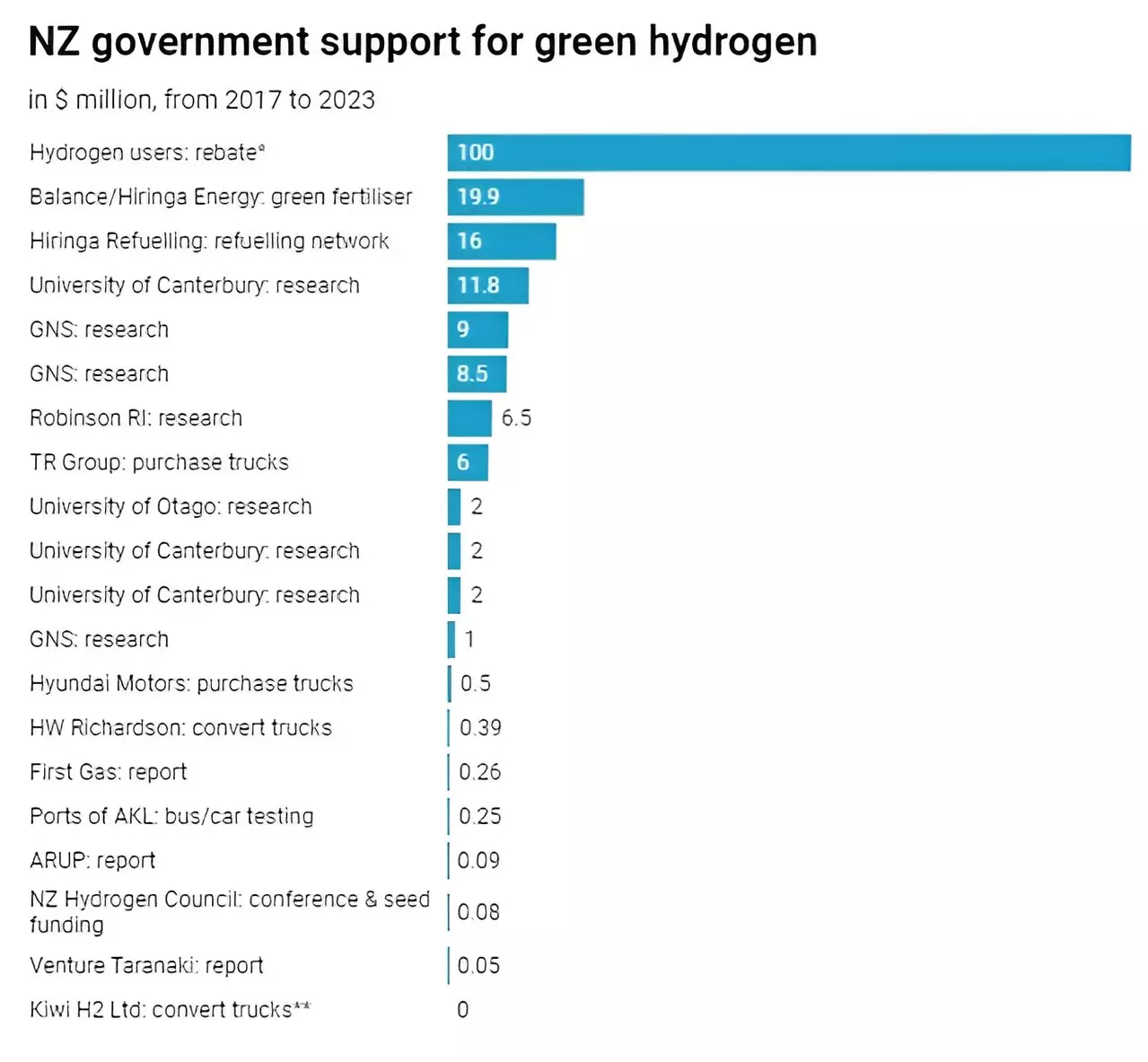The recent setback in the delivery of hydrogen-powered trucks to New Zealand, coupled with the removal of the NZ$100 million government rebate scheme for green hydrogen users, has cast a shadow of uncertainty over the transition to this promising energy technology. With the abrupt withdrawal of the US company Hyzon from the deal to provide heavy freight hydrogen trucks, the government’s energy strategy faces obstacles on its path to fruition.
Despite the challenges, the enthusiasm for green hydrogen in New Zealand remains palpable. Government support totaling $186.3 million from 2017 to 2023 has fueled the development of a hydrogen refueling network, vehicle conversions, research, and the establishment of the New Zealand Hydrogen Council. Proponents of green hydrogen tout its potential to decarbonize challenging sectors such as heavy road transport, shipping, and fertilizer production.
However, amidst the prevailing optimism, critical voices have been conspicuously absent from the discourse in New Zealand. Despite some experts raising concerns about the efficiency and cost-effectiveness of green hydrogen, the debate has largely been dominated by proponents of the technology. Reports and media coverage have overwhelmingly painted a rosy picture of green hydrogen’s prospects, leaving little room for dissenting opinions.
Alternative Technologies and Practical Realities
The emergence of alternative technologies, such as fast-charging electric trucks and battery-swap systems, has called into question the viability of hydrogen fuel cells in road transport. Examples like a German rail company’s switch to all-electric trains and the abandonment of hydrogen bus plans in Austria due to rising costs serve as cautionary tales. Research indicating the potential obsolescence of hydrogen fuel cells in certain applications further complicates the narrative.
As policymakers in New Zealand navigate the complex landscape of green hydrogen, a more nuanced perspective is essential. Acknowledging hydrogen as an energy carrier, rather than a standalone resource, is crucial in crafting a strategy that adapts to evolving trends in the energy sector. Critiques of green hydrogen must be given due consideration to inform decision-making and resource allocation effectively.
To ensure that government policy on green hydrogen is guided by sound judgment and independent advice, it is imperative to engage in a transparent and unbiased evaluation of the technology. A shift towards a more balanced narrative surrounding green hydrogen will enable stakeholders to prioritize applications with the highest potential for delivering on New Zealand’s decarbonization and sustainability goals. Industries transitioning to green hydrogen for essential processes like steel production, ammonia and fertilizer manufacturing, and methanol production could play a pivotal role in advancing the country’s green energy ambitions.


Leave a Reply
You must be logged in to post a comment.